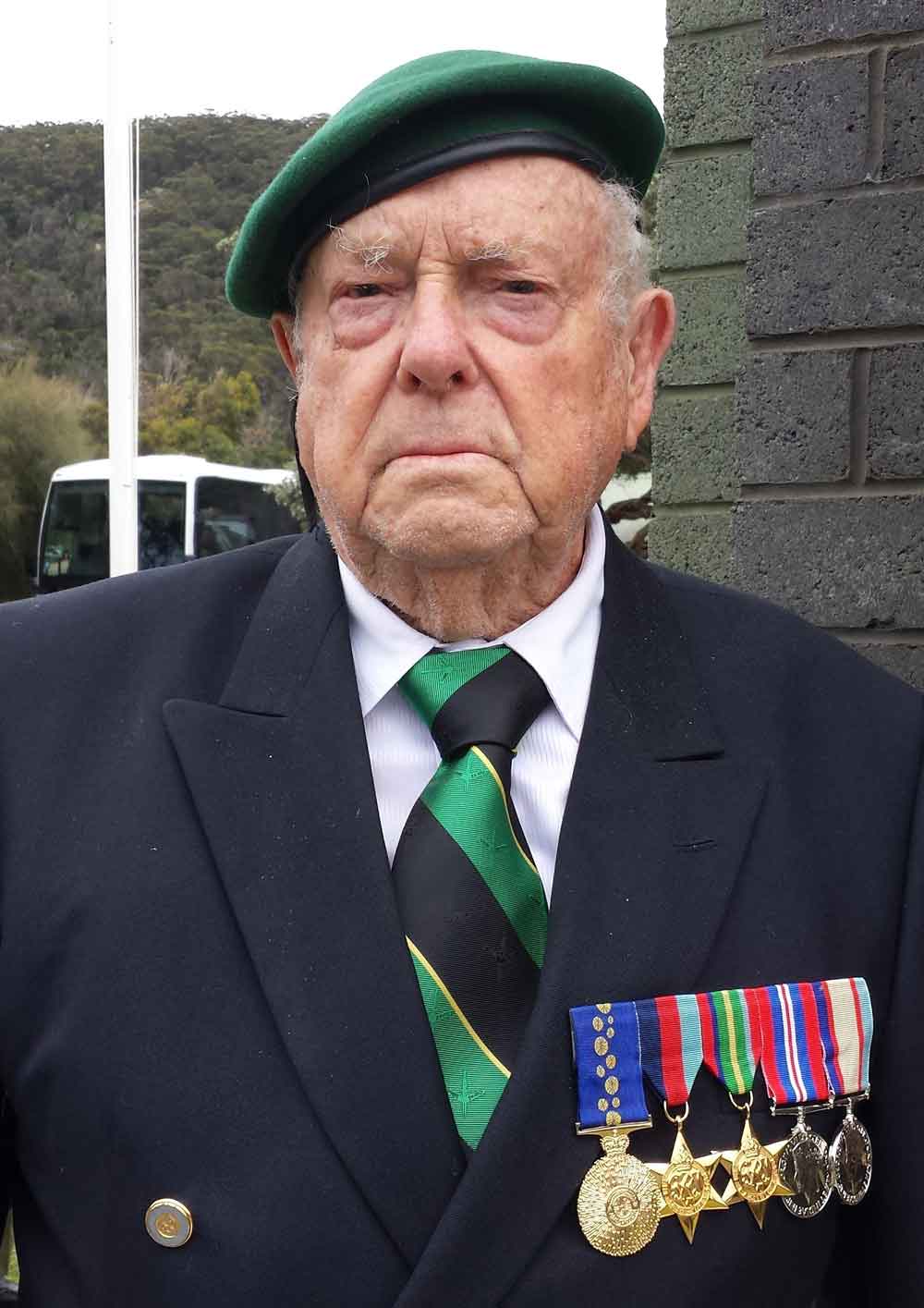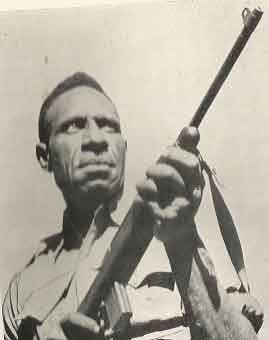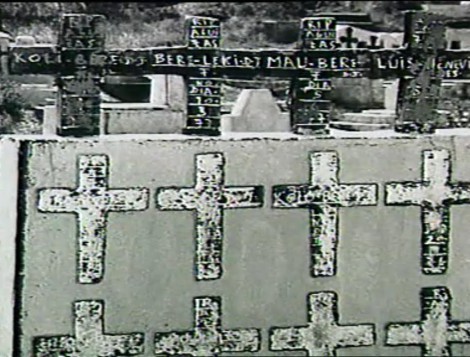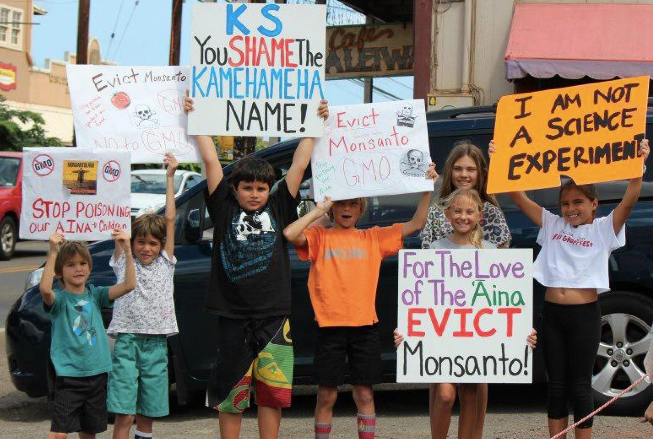Colin Todhunter
Last year on Twitter, Monsanto Vice President Robert Fraley provided a link to
an article that implied those who are suspicious of genetically modified organisms (GMOs), among other things, are confused, motivated by ideology or misinformed as a result of access to the ‘university of Google’, or they are simply conspiracy theorists. Fraley asked why people doubted science and seemed to be taking a swipe at critics of GMOs, who the GM sector and its mouthpieces like to depict as dealing in fear mongering and relying on ‘pseudo-science’.
The industry and its assortment of pro-GM activists in science and the media have a view of the world that requires the public to bow to some kind of scientific priesthood whose knowledge and opinions should never be questioned (listen to
this recent presentation from the Oxford Real Farming Conference - from 17:00). They require us to have unquestioned belief in science’s ability to solve humanity’s problems. Deference and faith are key to the creed.
The problem is that rich corporations and individuals have manipulated the idea of science and have been able to distort scientific research. They have translated their vast financial influence into political clout and the control of science and scientific institutions. The result is that science institutes, research programmes and practitioners now too often willingly serve the interests of powerful corporations. Far from liberating humankind the control of science and scientific research and media-led rational debate in the public sphere have become a tool of deception.
The reason why so many people doubt science is because they can see how science is corrupted and manipulated by powerful corporations. It is because they regard these large corporations as unaccountable and their activities and products not properly regulated by governments.
Sociologist Robert Merton
highlighted the underlying norms of science as involving research that is not warped by vested interests, adhering to the common ownership of scientific discoveries (intellectual property), promoting collective collaboration and subjecting findings to organised, rigorous critical scrutiny within the scientific community. Secrecy, dogma and vested interest thus have no place.
The reality is, however, careers, reputations, commercial interests and funding issues all serve to undermine these norms.
Twisted science, altered truth
In 2014, US Agriculture Secretary Tom Vilsack
called for “sound science” to underpin food trade between the US and the EU. Consumer rights groups in the US are pushing for the labelling of GMO foods, but Vilsack said that putting a label on a foodstuff containing a GM product “risks sending a wrong impression that this was a safety issue.”
Despite what Vilsack would have us believe, many scientific studies show that GMOs are indeed a big safety issue and what’s more are also having grave environmental, social and economic consequences (for example, see
this about GM and pesticides in Argentina,
this on how GM agriculture is drive ecocide and death in South America and
this about the overall efficacy and impacts of GM).
By not wanting to respond to widespread consumer demands to know what they are eating and risk ‘sending a wrong impression’ (doublespeak to English translation: sending out the right impression about GM being a
fundamentally flawed and corrupt endeavour), Vislack is trying to close down debate about issues that his corporate backers find unpalatable: labelling would allow consumers to reject the GMOs being fed to them. By attempting to side-line any genuine open discussion of GM in this way, the aim is to conveniently shut down any criticism of this technology and suppress scientific, political and public debate about it.
And have little doubt that the term ‘corporate backers’ applies in this case: big agribusiness has captured, or at the very least seriously compromised, key policy and regulatory bodies
in the US,
Europe,
India and in fact on a global level (see
this regarding control of the WTO).
The concept of ‘sound science’ is being manipulated to deceive and disguise the underlying agenda: GM as a strategy by global agribusiness to control intellectual property and global supply chains.
At the same time that Vilsack and others refer to some high-minded notion of ‘sound science’, they are actively striving to debase it along with its actual practice. The industry carries out inadequate, short-term studies and
conceals the data produced by its research under the guise of ‘commercial confidentiality’, while there is enough research that highlights the
dangers and potential harmful effects of its products (see
this and
this). It has also engaged in
fakery in India,
bribery in Indonesia and
smears and intimidation against those who challenge its interests, as well as the distortion and the censorship of science (see
this and
this).
With its aim to modify organisms to create patents that will secure ever greater control over seeds, markets and the food supply, the GM sector is only concerned with a certain type of science which supports these aims. If science is held in such high regard by these corporations, why in the US don't they label foods containing GMOs and throw open their studies open to public scrutiny, instead of veiling them with secrecy, restricting independent research on their products or resorting to unsavoury tactics?
If science is held in such high regard by the GM sector, why in the US did policy makers release GM food onto the commercial market without proper long-term tests? The argument used to justify this is GM food is ‘substantially equivalent’ to ordinary food. This is
wrong (
see this as well). Substantial equivalence is a trade strategy on behalf of the GM sector that neatly serves to remove its GMOs from the type of scrutiny usually applied to potentially toxic or harmful substances.
The reason why no labelling or testing has taken place in the US is not due to ‘sound science’ having been applied but comes down to the power and political influence of the GMO sector and because a sound scientific approach has not been applied.
The sector cannot win the scientific debate (although its PR likes to tell the world it has) so it resorts to
co-opting key public bodies or individuals to propagate various falsehoods and deceptions. Part of the deception is based on emotional blackmail: the world needs GMOs to feed the hungry, both now and in the future. This myth has been taken apart (see
this,
this and
this). In fact, in the second of those three links, the organisation GRAIN highlights that GM crops that have been planted thus far have actually contributed to food insecurity.
Research, peer review and vested interests
People’s faith in science is being shaken on many levels, not least because big corporations have secured access to policy makers and governments and are increasingly funding research and setting research agendas.
“As Andrew Neighbour, former administrator at Washington University in St. Louis, who managed the university’s multiyear and multimillion dollar relationship with Monsanto, admits, “There’s no question that industry money comes with strings. It limits what you can do, when you can do it, who it has to be approved by”."
Kamalakar Duvvuru
The reality is Monsanto is funding the research not for the benefit of either the farmer or the public, but for its own commercial interests.
Ultimately, it is not science itself that people have doubts about but science that is pressed into the service of immensely powerful private corporations and regulatory bodies that are effectively co-opted and adopt a ‘don’t look, don’t find approach’ to studies and products (see
this and
this) or are simply being
pressured by the GM industry to come up with findings that it finds acceptable; or in the case of releasing GMOs onto the commercial market in the US, bypassing proper scientific procedures and engaging in doublespeak about ‘substantial equivalence’ then hypocritically calling for ‘sound science’ to inform debates.
We need look no further than the report
Seedy Business to see how science is swayed, bought or biased by agribusiness. This is done by, for example, suppressing adverse findings, harming the careers of scientists who produce such findings, controlling the funding that shapes what research is conducted, the lack of independent US-based testing of health and environmental risks of GMOs and tainting scientific reviews of GMOs by conflicts of interest.
"It’s no surprise that many public scientists and organizations ally themselves with the GMO industry, as they rely heavily on industry funding. GMO companies have representatives on university boards and fund research, buildings and departments. Monsanto has donated at least a million dollars to the University of Florida Foundation. Many US universities that do crop research are beholden to Monsanto. Some academic scientists own GMO patents and are involved in spin-off companies that develop GM crops... Universities have become businesses and scientists have become entrepreneurs and sales people."
The same interests are moreover undermining the peer-review process itself and the ability of certain scientists to get published in journals – traditionally, the benchmark of scientific credibility. Powerful interests increasingly hold sway over funding, career progression as a scientist, journals and peer review (see this and this, which question the reliability of peer review in the area of GMOs).
“The case against science is straightforward: much of the scientific literature, perhaps half, may simply be untrue. Afflicted by studies with small sample sizes, tiny effects, invalid exploratory analyses, and flagrant conflicts of interest, together with an obsession for pursuing fashionable trends of dubious importance, science has taken a turn towards darkness.”
Peer-review is often referred to as the ‘gold standard’ by with which we should measure the validity of knowledge. As a result, non-peer-reviewed articles, reports or research is too often cast aside in favour of a process that, despite what some would like us to believe, is massively distorted by commercial and career-related interests.
As already noted, powerful corporations fund research programmes and institutions and, by implication, provide a mapped-out career progression for individual scientists.
Through funding, they can shape the research agenda: which issues are to be examined and which are not, as well as how research is to be carried out. They are also able to divert funds to certain scientists and can suppress certain findings and bring pressure to bear on institutions and individual scientists. Corporations may also fund or hold sway over journals, as the Seralini affair showed, and peer reviewers themselves often have career or funding interests and have a stake in pushing a certain technology and thus side-lining certain findings or individual academics.
Scientist as priest: uninformed personal opinion masquerades as fact
Scientists do themselves or science no justice when they spout rhetoric in support of GM. Although they may be respected within their own particular discipline and are highly qualified, they seem to think it is therefore legitimate for them to offer uniformed personal opinion on virtually any other issue - and to be regarded as expert sources.
Since when did having a PhD in molecular biology or an associated field make someone an expert on political systems or the history of Cambodia, the USSR or some other country, which they are implicitly referring to when making such a ridiculous statement?
Since when did a molecular biologist become an expert in political economy and, more specifically, on trade and development, commodity markets, debt repayment, land speculation, export-oriented oil-dependent agriculture, sustainable agriculture, the dynamics of structural inequality and poverty or any of the other issues that impact on global and regional food security and create food deficit areas?
When they talk about feeding the world and attack critics of GM in the way they do, they want to promote the notion that a bogus and flawed techno quick-fix GMO solution is paramount and will suffice. Or perhaps it is highly convenient for them to overlook all of the above issues, which in reality, not in the fantasy world of the pro-GMO scientist, determine humanity's ability for feeding itself effectively and properly.
The reality is that this rhetoric is an attempt to shut down any criticism. It is also designed to side-line
legitimate analyses of the root causes of hunger and poverty,
genuine solutions for productive, sustainable agriculture that can feed humanity and those who argue for them.
Readers might want to peruse this
entertaining take-down of pro-GMO activist-scientists who seem to think they are experts on everything. The author states:
"... they are in fact not scientists at all but corporate propagandists. They do nothing but knowingly tell lies, claim knowledge where they have none, and... confuse the nature of every issue. All the while they sanctimoniously insist that anyone who lacks formal scientific credentials is unqualified to speak about GMOs. (This of course... doesn’t apply to corporate executives or pro-GMO politicians and media flacks.) The best proof of this... is that literally none of them... stays within the bounds of their own disciplines when pontificating about GMOs... every credentialed pro-GM activist evidently feels free to spew the most ignorant, idiotic opinions on any subject imaginable, no matter how unqualified they are according to their own credentialist standard."
Although the flamboyant style is done to maximise impact, the writer is making some key, valid points. For example,
see this for a more sober account of Kevin Folta's utterances on issues beyond his expertise.
And yet, people like Richard John Roberts, Anthony Trewavas, Shanthu Shantharam and others like pro-corporate/GM media mouthpiece Jon Entine ('
The Chemical Industry's Master Messenger') or pro-corporate/GM political mouthpiece like the UK’s Owen '
Green Blob' Paterson seem to think some emotive talk about critics of GM engaging in crimes against humanity, stealing food from the poor, engaging in pseudo-science or some other sound bite designed for public consumption is fine.
If there is one thing these pro-GMO activists are truly expert at is passing off ill-informed rhetoric for expert opinion, while hiding behind a science PhD. This is nothing but spin that is designed to blur the lines between fact and fiction, science and propaganda.
Some people seem quite incredulous that people could doubt science.
Perhaps Robert Fraley should try to convince us why we should not. And while he's at it, he might want to contemplate why we should take anything he or his company says, does or promotes as 'science' given its
decades-long history of deceptions, cover ups and criminality.








